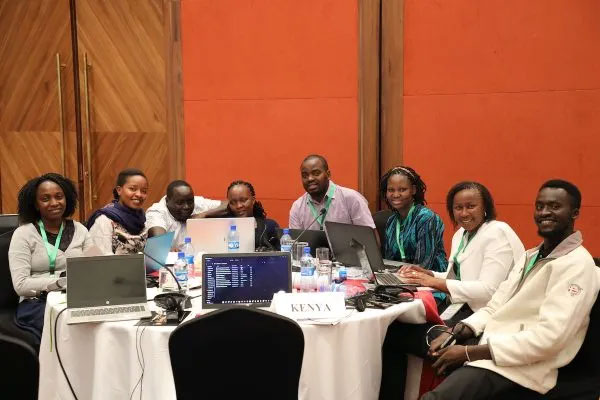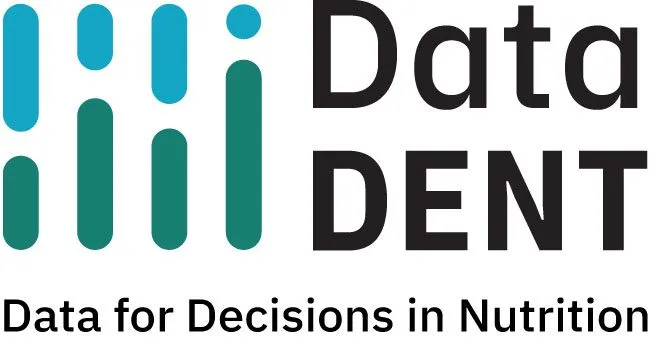
Picture: Countdown Kenya Collaboration Team presents at an analytical workshop, photo by Countdown to 2030
Background
DataDENT is working to identify knowledge & skills needed to support strong nutrition data value chain and ways to effectively strengthen the capacity of teams engaged with national nutrition information systems (NIS). We are committed to learning from initiatives with similar goals including Countdown to 2030 for Women’s Children’s and Adolescent’s Health.
Launched in 2003, Countdown is a pioneering multi-partner initiative that uses data to foster accountability for reproductive, maternal, newborn, child and adolescent health and nutrition (RMNCAH&N). Originally, Countdown produced accountability reports about progress of low and middle income countries towards global maternal and newborn mortality targets including the Millenium Development Goals and then the Sustainability Development Goals.
Countdown continues to produce annual country profiles and contribute to many global monitoring efforts, but it has expanded its model to work directly with government and in-country public health research institutions. Countdown aims to build capacity of these groups for analysis and translation of health systems intervention coverage data from routine health information systems (DHIS-2) and household surveys.
In the current project cycle, Countdown partners with the Global Financing Facility (GFF) and supports 26 sub-Saharan African countries with GFF investments to analyze data that inform annual planning cycles and country performance reviews. Each country collaboration team includes RMNCAH&N program and policy leaders and data analysts from ministries of health and other national public health institutions.
Countdown has also established six data & analysis centers in academic institutions around the world, each with a different thematic focus. These centers develop new methods and tools for intervention coverage analysis. They also provide cross-cutting mentorship to specific country teams.
We interviewed several Countdown team members from the effective coverage data & analysis center at the Johns Hopkins Bloomberg School of Public Health to better understand their capacity strengthening efforts. Responses are synthesized below.
How does Countdown approach capacity strengthening?
Countdown uses multiple approaches for capacity strengthening including 1) in-person training workshops, 2) development of user-friendly methods and tools, 3) one-on-one country support, and 4) a fellowship program.
Each year, the African Population Health Research Center (APHRC) brings Countdown’s African country teams together with representatives from the global data & analysis centers, GFF and UN partners for an in-person data analysis workshop. The goal is for country teams to produce findings to include in their annual GFF performance reports. In 2024, each of the 26 countries were represented by six participants. All participants were trained to run core analysis code that was prepared in advance by the facilitators. Participants with more advanced skills were advised on how to adapt and refine the code.
Countdown supports country teams in implementing new data management and analytical methods designed at a global level. For example, in 2023 GFF shared a new tool to help workshop participants quickly download data from their DHIS-2 for further analysis.
The one-on-one support is flexible based on the partners involved. Johns Hopkins researchers support country-specific analyses by teams from Bangladesh, Burkina Faso, D.R. Congo, Malawi, Mali, and Niger through biweekly virtual meetings and provide more targeted mentoring based on the country’s team needs.
Countdown’s latest capacity building effort, launched in 2023, is a 12-month fellowship program open to mid-career and young investigators from the Africa teams. Fellows develop an individual research project and receive mentoring to complete it. Each annual cohort includes 10 fellows aged 45 or younger.
What key knowledge & skills are required across Countdown country team members?
Individuals are selected by their national partner institutions. Most participants hold university degrees related to statistics, epidemiology, public health, or medicine. Countdown requests that teams select people with basic data literacy and statistical software proficiency. However, actual baseline skill levels and responsiveness to capacity strengthening activities vary across the 26 countries. All teams are committed to growing in capacity.
Early and mid-career fellows have more specific requirements including research experience and a master’s degree in a public-health related field. They are selected based on the quality of their research proposals.
How effective are the Countdown capacity development efforts?
There has been no formal assessment of Countdown’s capacity strengthening activities, however, the project has documented successes and challenges from the perspective of several country teams.
In Kenya, Dr. Helen Kiarie, head of the Ministry of Health’s Division of Monitoring and Evaluation, shared, “Strengthening the analytical capacity in my team is a core feature of the Countdown collaboration, as we discuss the methods extensively and jointly develop analytical products…This kind of collaboration is essential and sets a good example of genuine partnership where we learn from each other.”
Johns Hopkins team members point to country teams using workshop outputs in GFF reports as evidence of impact. However, they caution that the annual workshops alone do not build sustained capacity; the ongoing tailored mentorship is essential.
One major challenge to building sustained capacity is high levels of turnover in country team members which reflects the turnover of positions across government.
What lessons can we take away from Countdown experience?
- Knowledge and skills building activities should produce practical outputs. For Countdown, the GFF annual reporting requirements ensure there is demand for the outputs that country teams work on during and after workshops.
- Multi-country workshops can be an efficient way to transfer core knowledge and to start practicing skills; however, ongoing tailored mentorship is essential for sustained capacity building.
- Effective capacity strengthening is resource intensive. Countdown’s in-person analysis workshops are expensive to host and require extensive preparations by global teams. Donors must be convinced of the value adds of these activities.
Countdown’s experience identifies effective training and mentorship strategies that can be applied across the entire data value chain. DataDENT is using a combination of workshops and tailored mentorship in our NIS work in Nigeria and Ethiopia and will continue to learn from other projects about effective capacity strengthening approaches.
